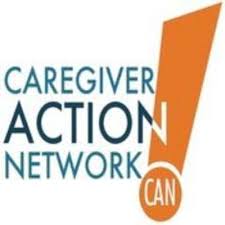Get a Dog
By Crawford Clay, Certified Patient & Family Support Navigator, Colon Cancer Alliance
Want to prevent cancer? Get a dog.
That’s the best advice I’ve ever received. We got our dog, Ranger, Christmas of 2005. That was the year I finished treatment for stage III rectal cancer. That was 12 years ago. I’ve been cancer free this whole time.
While there are many other things you can do to prevent cancer, dog ownership is the easiest and most fun. Research links both tobacco and alcohol use to many common forms of cancer, including colon cancer. Quitting tobacco is the biggest thing you can do to reduce your chances of getting cancer. It’s also much harder than getting a dog.
What is so important about dog ownership? Ranger has to be walked every day. I like to exercise but not in the cold. Ranger loves the cold. He doesn’t care about rain; he’s got to get his 30 minutes in. Walking 30 minutes a day lowers stress, strengthens your cardiovascular system and can led to weight loss. Stress and obesity are both linked to cancer.
That said, even if you can’t afford a dog or you live in a place that doesn’t allow dogs you should still try to exercise. Try getting some fish or another pet. Relaxing on the couch will make both of you happier.
Other things are linked to colon cancer as well. People with diabetes, Irritable Bowel Syndrome (IBS) and Crohn’s disease are all at a higher risk of colon cancer. Colon cancer also runs in families like mine.
Colon cancer prevention also has a special weapon more powerful than even dog ownership. Screening actually prevents colon cancer.
Everyone should be screened starting at 50 (African Americans should be screened starting at 45.) If you have a close relative with colon cancer, you should be screened 10 years before they were diagnosed. Since I was diagnosed at 43, my daughters should be screened at 33.
If you are at average risk of colon cancer, any U.S. Preventive Services Task Force approved test is fine. If you are at high risk, then a colonoscopy is the only test for you—it is the only test that can find and remove polyps.
You are average risk if you have no close relatives with colon cancer, you don’t have any disease like diabetes or IBS that increases your risk and you aren’t symptomatic.
Symptoms of colon cancer include bleeding, change in bathroom habits, change in stool shape, abdominal pain, and bloating. If you have any of these symptoms see a doctor and find out what the problem is. It may not be colon cancer, but it’s something.
Ranger is a chocolate lab, spaniel mix. He likes long walks, naps and having his ears scratched. He is an avid Dress in Blue Day model and aspiring marathon lounger.
Next: Trusting your GUT
Allsup
Related Articles

Uncategorized
Helping Family Caregivers With What They Need to Know

Uncategorized
Understanding MS and Disability Benefits

Uncategorized
BIA-MO Gets Real about Brain Injury Awareness

